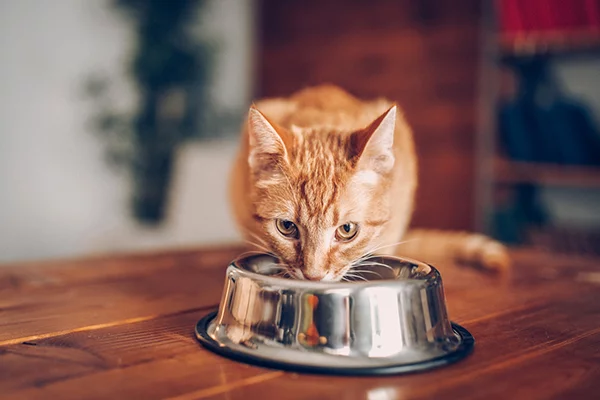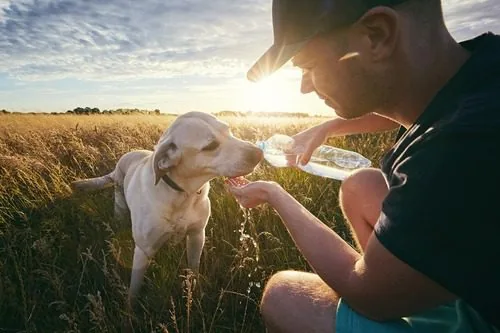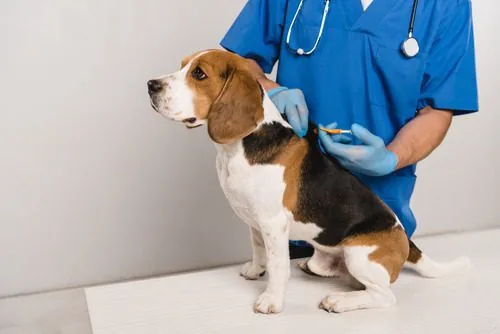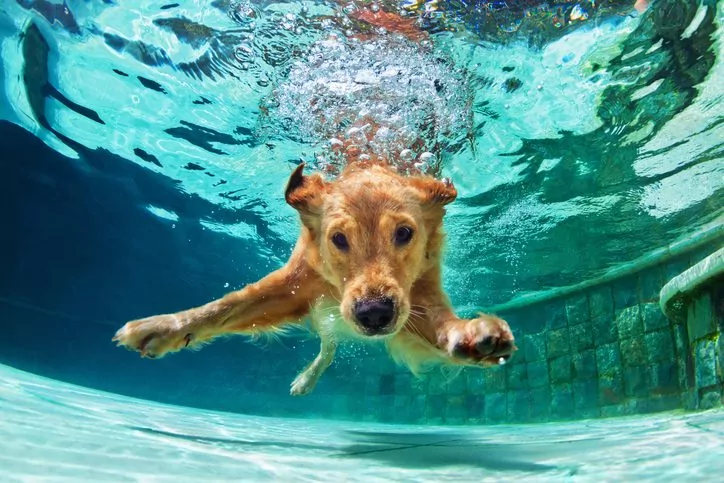Bowling Green, KY Cat Owners: Why Is My Cat Losing Weight But Still Eating?
When people own a cat or two, they have to worry about weight gain and a common misconception among many people is that weight loss is good for cats. Did you know, though, that unexplained weight loss can be a problem, too? It’s true! If your cat loses too much weight, he/she can be at risk for hepatic lipidosis, a life-threatening medical condition where the liver has to process too much stored fat to provide energy to the body.

In this article, we’ll go over what can cause your cat to lose weight while still eating and what you need to do.
Cancer Can Cause Sudden Weight Loss in Cats
When most people take their cat into their veterinarian for unexplained weight loss, they might be thinking of the big c-word: cancer. Yes, like humans, animals can get cancer and it can appear just about anywhere in their bodies.
In cats, lymphoma is the most common cancer and it can live in the mouth, the GI system, lymphatic system, or somewhere else. Other symptoms besides continued eating despite loss of weight include lethargy (tiredness), hiding, showing pain, general malaise (feeling of discomfort and uneasiness).
Feline Immunodeficiency Virus
Another viral disease which can be a culprit is FIV, or feline immunodeficiency virus. Closely related to human immunodeficiency virus, FIV is a chronic, not necessarily terminal, condition where a cat’s immune system doesn’t work like it should and can result in not gaining weight, despite eating as per usual.
Symptoms of FIV may include frequent minor infections, slightly enlarged lymph nodes, inflammation of gums and oral tissue, eye disease, etc.
Feline Leukemia and Weight Loss
A third viral disease in cats that might result in looking like a cat is in starvation mode is FeLV, a.k.a feline leukemia. This is another chronic condition where a cat is susceptible to infection. Other symptoms may include anemia, lethargy, diarrhea, infections of the ear and skin, poor coat condition, etc.
Diabetes in Cats
Diabetes could be a fourth reason why a cat may be eating, yet losing weight. Other symptoms of diabetes in cats can include increased thirst, increased urination, acting more sluggish, having sweetly-scented breath, and a development of urinary tract infections.
Feline Infectious Peritonitis
Feline infectious peritonitis is mainly seen by veterinarians among catteries, but it could be a fifth reason. Cats with this will seem sick and often have a fever that can’t be controlled by antibiotics.
GI problems, including irritable bowel syndrome, pancreatitis or another component, could be another reason why wasting is happening despite normal eating habits. Other symptoms could include diarrhea and vomiting.
Worms Can Cause Your Cat to Lose Weight
A sixth reason could be intestinal parasites, a.k.a. worms. These spaghetti-looking guys and girls can be transferred from cat to rodent, so if your cat is outdoors, check his/her stools to see if worms may be the culprit. Another way an outdoor cat may get worms in their body is through grooming after walking through infected grass.
Both indoor and outdoor cats can get them through their mom when the moms are pregnant with them or through their mother’s milk after birth. Symptoms aren’t always present, but can include diarrhea, vomiting, bloating, and trouble breathing.
Respiratory Problems Can Cause Weight Loss in Cats
On the other end of a cat’s body, upper respiratory infections, such as pneumonia, can be a reason for this, too. If your cat seems wheezy, sneezy, and/or has watery eyes, they may point, as well as unexplained weight loss, to an upper respiratory infection.
Organ Failure in Cats
Organ failure can be especially common in older cats, since metabolism changes as a cat ages. Remember to help prevent this by brushing your cat’s teeth regularly, as tartar and plaque can dislodge from the teeth and clog up the heart, kidneys, or liver!
A veterinarian can determine if organ failure, such as kidney disease, is happening by performing a blood test.
Hyperthyroidism
If your cat is eating more than usual, but still losing weight, hyperthyroidism could be another culprit as well. This happens from a benign tumor that’s being produced by hormones on the thyroid gland.
Due to this tumor, the thyroid hormone becomes elevated and, in addition to weight reduction, can result in symptoms such as increased drinking, urination, and activity; also, vomiting, diarrhea, restlessness, begging for food and attention, urination in inappropriate areas, a greasy and unkempt coat, and wasting of muscles.
Later stages can result in heart problems or even death. This is another condition seen in older cats, especially, but can happen in cats as young as six years old.
Dental Disease Can Cause Weight Loss
Though cats are less common to eat when experiencing dental problems, dental disease can be another problem for rapid (or less than rapid) weight loss while continuing to eat. If you notice your cat chewing strangely, drooling, or pawing at his/her mouth, it may be worth a consideration and a talk with your veterinarian!
Other Reasons Your Cat is Losing Weight While Still Eating
There are also less dramatic reasons your cat might be losing weight, yet eating more or the same as they did before the weight loss. One of these reasons is stress. Stress in cats can be caused for different reasons, but it can do with a sudden change in the cat’s environment, such as a death in the family (friendly reminder that animals have feelings, too, and often feed off their owner’s energy), a new baby, a roommate moving in, etc.
It can also be due to the food bowl being too close to the litter box, loud noises when they’re trying to eat, other animals in their feeding area, and dirty food dishes.
Another reason is arthritis and loss of muscle mass in older cats. Arthritic pain can be controlled by medication.
Lastly, did you know that there is a reason that one may see a difference in the same pet food in a pet store (kitten versus cat food, i.e). This is because kittens need more protein in their food, as they’re more active, so cat food has less protein. It’s important to note this because, if purchasing the wrong food, you may accidentally be making your kitten lose weight because he/she isn’t getting as much nutrients as he/she needs.
When in Doubt, Contact Your Veterinarian in Bowling Green, KY
As mentioned above, cats can experience any one of these reasons. In any case, if you find that your cat is still eating but losing weight, discuss any concerns with your veterinarian as soon as possible.
Share This
Recent Posts
About Southcentral Veterinary Services
Southcentral Veterinary Services is here to ensure that you and your pet can access a variety of high-quality, progressive medical services. Our aim is to serve our patients and clients with integrity, compassion, and a focus on being your primary family vet.



